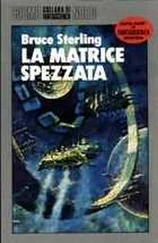Bruce Sterling - Holy Fire
Здесь есть возможность читать онлайн «Bruce Sterling - Holy Fire» весь текст электронной книги совершенно бесплатно (целиком полную версию без сокращений). В некоторых случаях можно слушать аудио, скачать через торрент в формате fb2 и присутствует краткое содержание. Год выпуска: 1996, ISBN: 1996, Издательство: Orion, Жанр: Киберпанк, на английском языке. Описание произведения, (предисловие) а так же отзывы посетителей доступны на портале библиотеки ЛибКат.
- Название:Holy Fire
- Автор:
- Издательство:Orion
- Жанр:
- Год:1996
- ISBN:1-85798-462-5
- Рейтинг книги:4 / 5. Голосов: 1
-
Избранное:Добавить в избранное
- Отзывы:
-
Ваша оценка:
- 80
- 1
- 2
- 3
- 4
- 5
Holy Fire: краткое содержание, описание и аннотация
Предлагаем к чтению аннотацию, описание, краткое содержание или предисловие (зависит от того, что написал сам автор книги «Holy Fire»). Если вы не нашли необходимую информацию о книге — напишите в комментариях, мы постараемся отыскать её.
Nominated for BSFA Award in 1996, for Hugo and Locus awards in 1997.
Holy Fire — читать онлайн бесплатно полную книгу (весь текст) целиком
Ниже представлен текст книги, разбитый по страницам. Система сохранения места последней прочитанной страницы, позволяет с удобством читать онлайн бесплатно книгу «Holy Fire», без необходимости каждый раз заново искать на чём Вы остановились. Поставьте закладку, и сможете в любой момент перейти на страницу, на которой закончили чтение.
Интервал:
Закладка:
He would be dead within five years—or so she judged. He was frail, and had been very badly injured once. There were steps he might have taken toward increased longevity, but he seemed to consider this struggle to be vulgar. Josef Novak was one hundred twenty-one years old, far older than the people of his generation had ever expected to become. He was a relic, but Maya still felt a bitter sense of injustice at the thought of Novak’s mortality. Novak often spoke of his own death, and clearly felt no fear of passing, but it seemed to her that a just universe would have let a creature like Josef Novak live, somehow, forever. He was her teacher, and she had come to love him very much.
The Tête was lively tonight. The crowd was much larger than she had expected and there was a tension and a vibrancy she hadn’t sensed before. She and Novak logged in at the bar. Novak reached out about four meters and gently finger-tapped Klaus’s helmet. Klaus turned, startled, then grinned bearishly. The two old men began to chat in Czestina.
“Ciao Maya.”
“Ciao Marcel.” She had come to know Marcel on the net—to the extent that anybody knew Marcel. The red-haired and loquacious Marcel never stopped talking, but he was not a revelatory or confiding man. He was twenty-seven years old and had already circled the world, by his own estimation, some three hundred and fourteen times. Marcel had no fixed address. He had not had a fixed address since the age of two. Marcel basically lived in trains.
Benedetta, who loved to talk scandal, claimed that Marcel had Williams syndrome. In his case, it was a deliberate derangement, an abnormal enlargement of Heschl’s gyrus in the primary auditory cortex. Marcel had hyperacusis and absolute pitch; he was a musician, and a sonic artificer for virtualities. The syndrome had also drastically boosted Marcel’s verbal skills, which made him an endless source of anecdotes, speculation, brilliant chatter, unlikely linkages, and endless magnetic trains of thought that would hit a mental switch somewhere and simply …
Benedetta claimed that the pope also had Williams syndrome. Supposedly this was the secret of the pope’s brilliant sermonizing. Benedetta believed that she had the dirt on everybody.
“How chic you look, Maya. How lovely to physically witness you.” Marcel’s coat was a patchwork of urban mapping. Marcel lived in that coat, and slept in it, and used it as a navigation aid. Now that she knew that Marcel’s jacket was so plonkingly useful, it somehow seemed rather less vivid. Paul would have described that perception as a category error.
She kissed Marcel’s bearded cheek. “You, too.”
“Congratulations on your Italian venture. They say Vietti’s dying for another session.”
“Giancarlo’s not dying, darling, you mustn’t get your hopes up.”
“I see you brought your sponsor. Your photographer. He must be your man of the hour.”
“He’s my teacher, Marcel. Don’t be gauche.”
“I have my net set to read your posts in Français,” said Marcel. “I wish you would post more often. In Français, your commentary is remarkable. Aspects of wit emerge that one simply can’t find in English anymore.”
“Well, there’s a quality in a good translation that you can never capture with the original.”
“There’s another one, that’s it exactly. How is it that you do that? Is it deliberate?”
“You’re very perceptive, darling. If you don’t get me a frappé I’m afraid I’ll kiss you.”
Marcel weighed these possibilities and got her the frappé. She sipped it and gazed about the bar, leaning on one elbow. “Why do things seem so très vivid tonight?”
“Do they? Paul has plans for a spring outing. A major immersion. I hope you’ll come.”
“Oh, I wouldn’t miss a major immersion for anything.” She had no idea what Marcel was talking about. “Where is Paul?”
Paul was sitting among a group of perhaps a dozen people. He had them spellbound.
Paul opened a small metal shipping canister and removed a life-size carving of a garden toad. The squat and polished toad appeared to be chiseled from a solid ruby.
“Is this one beautiful?” Paul said. “You tell me, Sergei.”
“Well,” said Sergei, “if it’s a product of the Fabergé workshop as you tell us it is, then of course it’s beautiful. Look at that exquisite workmanship.”
“It’s a toad, Sergei. Are toads beautiful?”
“Of course toads can be beautiful. Here is your proof.”
“If someone said you were as beautiful as a toad, would you be pleased?”
“You are changing the context,” Sergei said sulkily.
“But isn’t that what the piece itself is doing? The shock of disbelief is the core of its aesthetic. Imagine people in the year 1912, taking a rare jewel and spending months of dedicated hand labor turning it into a toad. Isn’t that perverse? It’s that very perversity which gives the piece its trophy meaning. This is a Fabergé original, designed for a Czarist aristocrat. Czarist society was a culture generating jeweled toads.”
Paul’s little crowd exchanged uneasy glances. They scarcely dared to interrupt him.
“Still—are we to imagine that Czarist aristocrats believed that toads are beautiful? Does anyone here imagine that some Czarist aristocrat asked the Fabergé atelier to make her a beautiful toad?” Paul gazed about the circle. “But don’t you imagine she was pleased with the result? Once she possessed it, she surely found it beautiful.”
“I love the toad,” Maya volunteered. “I wouldn’t mind owning that toad myself.”
“What would you do with it, Maya?”
“I’d keep it on my bureau and admire it every day.”
“Then take it,” Paul said. He handed it to her. It was surprisingly heavy; it felt just like a red stone toad.
“Of course that’s not really a valuable Fabergé heirloom,” Paul told them all, casually. “It’s an identical museum replica. The Fabergé original was laser scanned to an accuracy of a few microns, and then instantiated in modern vapor deposition. Oddly, there were even a few flaws introduced, so that the artificial ruby is indistinguishable from the genuine corundum that forms a natural ruby. About a hundred toads were made in all.”
“Oh, well, of course,” said Maya. She looked at the little red toad. It was somewhat less beautiful now, but it was still a remarkable likeness of a toad.
“Actually, there were over ten thousand made. It’s not artificial ruby, either. I lied about that. It’s only plastic.”
“Oh.”
“It wasn’t even fresh plastic,” Paul said relentlessly. “It was recycled garbage plastic, mined from a twentieth-century dump. I just pretended it was the Fabergé original, in order to make my point.”
“Oh, no,” Maya mourned. People began laughing.
“I’m joking, of course,” Paul said cheerily. “In point of fact, that truly is a Fabergé original. It was made in Moskva in 1912. The labor took fourteen skilled artisans a full five months to complete. It’s one of a kind, completely irreplaceable. I’ve borrowed it from the Antikensammlungen in Munchen. For heaven’s sake, don’t drop it.”
“You’d better have it back, then,” Maya said.
“No, you hold it for a while, my dear.”
“I don’t think so. It wears me out when it keeps mutating like this.”
“What if I told you that it wasn’t even made by Fabergé? That in fact, it was an actual toad? Not human workmanship mimicking a toad, but an actual scanned garden toad. Cast in—well, you can choose the material.”
Maya looked at the sculpture. It was a sweet thing to hold, and there was something about it that she truly did like, but it was making her brain hurt. “You’re really asking me if a photograph of a toad can have the same beauty as a painting of a toad.”
Читать дальшеИнтервал:
Закладка:
Похожие книги на «Holy Fire»
Представляем Вашему вниманию похожие книги на «Holy Fire» списком для выбора. Мы отобрали схожую по названию и смыслу литературу в надежде предоставить читателям больше вариантов отыскать новые, интересные, ещё непрочитанные произведения.
Обсуждение, отзывы о книге «Holy Fire» и просто собственные мнения читателей. Оставьте ваши комментарии, напишите, что Вы думаете о произведении, его смысле или главных героях. Укажите что конкретно понравилось, а что нет, и почему Вы так считаете.




